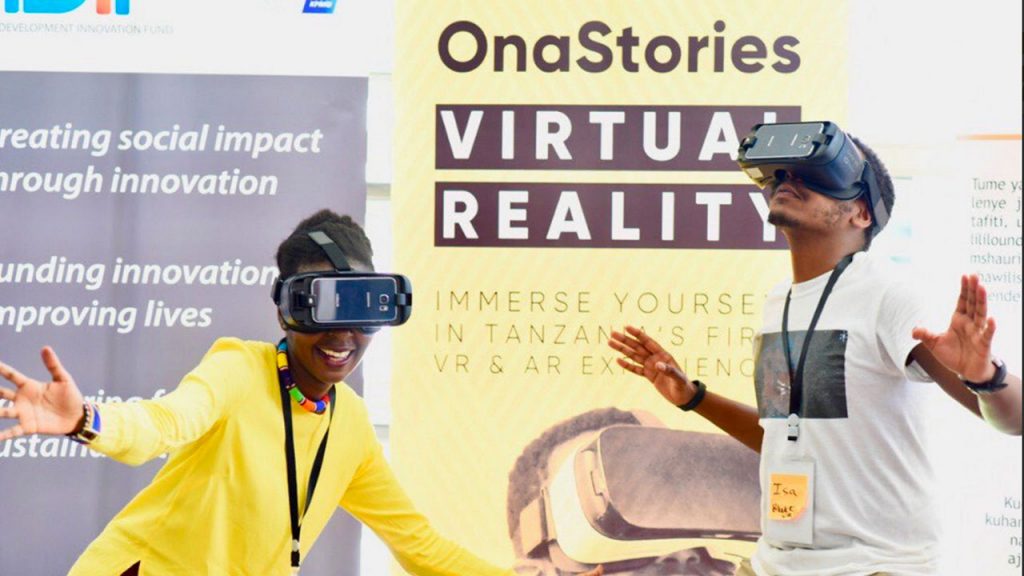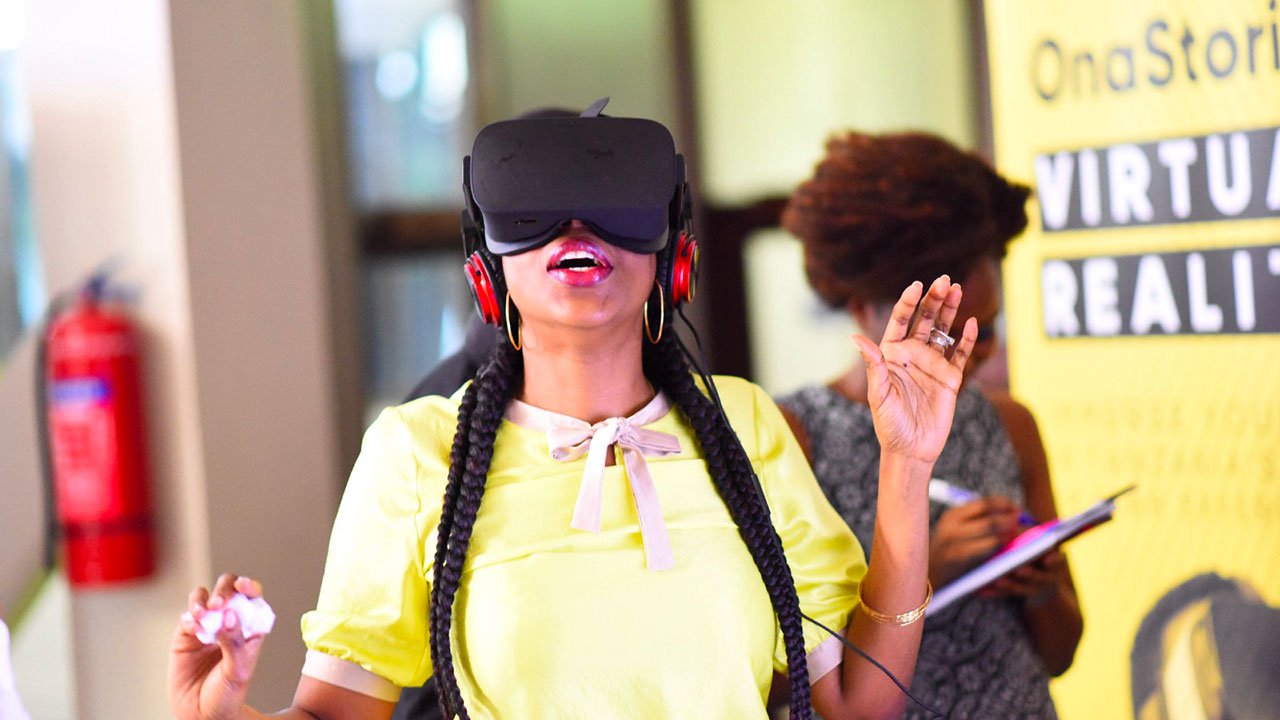Tulanana Bohela is a Tanzanian entrepreneur, journalist and filmmaker. She began reporting in Tanzania and the East African region on TV, radio and digital for BBC Africa and BBC Swahili. She became the digital lead in Tanzania for the BBC World Service.
Background & first experiences
Tulanana Bohela – I am a jounalist and filmmaker. I have been a multimedia journalist for the past 7 years reporting in Tanzania and the East African region on TV, radio and digital for BBC Africa and BBC Swahili. I recently transitioned from my role as the digital lead in Tanzania, as Senior broadcast journalist/ producer for the BBC World Service.
T. B. – I currently working full time as the co-founder of OnaStories (link – link), an Africa first graphic journalism hub. OnaStories is an #innovateAFRICA 2017 winner exploring the intersection of Mobile-first content x digital video with an Africa-first perspective. Last year, I was selected to be part for the first East Africa VR hackathon hosted by Nairobi Story Lab (link) I was part of a group of 9 journalists and filmmakers introduced to VR and 360 video, challenged to create non-fiction and journalism stories. The experience was so great. I felt a light switch light up in me. I immediately started to think of the ways to introduce it back home in Tanzania.

Creating the right vocabulary
T. B. – Currently we are focusing on using VR for social good. We can’t get into the details as yet but we are really excited. We are also doing demos and tours with the public to showcase more on the potential of VR. We did a the very first VR showcase in Tanzania at Innovation week by Human Development Innovation Fund Tanzania. I have given workshops to women in directing at workshops at the Zanzibar International Film Festival 2018 (link).
T. B. – The reaction has been mind-blowing, when we did our first VR showcase, the reactions were overwhelming, our booth was filled with people coming and going. What was great was the level of engagement, people wanted to know more, on how to use it, could they take it home? what about work? how could they use it for certain company projects?
T. B. – I think the challenge for us was also trying to create the correct Kiswahili vocabulary around a tool that is so foreign and new and keeps growing. Kiswahili is the national language, so simply saying VR or 360 would suffice. So far, I haven’t come across a term that can sufficiently describe ‘virtual reality’ however for 360 we say ‘video ya nyuzi mia tatu sitini’. That’s what I have also used as a stand in for VR. Often the language has had to play catch up to technological terms especially in the 21st Century.
Expanding in Tanzania
I see it growing steadily. It’s kind of what I call “baptism by slow burning fire” because we don’t have predecessors that are faced similar environments to learn from. There is no playbook, we are creating the blueprint as we go along. I see the ecosystem of African VR creators growing, we are happy to have partners like Black Rhino in Kenya to look up to. We are constantly discussing on how to demystify VR to companies and individuals to understand the value of VR.
As per expanding digital culture, unlike our Kenyan counterparts, Tanzania faces a big gap in digital literacy, mobile learning is just picking up and being taken seriously by government but still there’s a lot of backlash when it comes to online participation, we have seen this with taxes on social media platforms and Uganda and heavy penalties on bloggers in Tanzania. We are constantly trying to calculate all these aspects as we navigate the space, so that VR can be accepted in social spaces.
More about Tulanana & her work on Medium.



Leave a Reply
You must be logged in to post a comment.